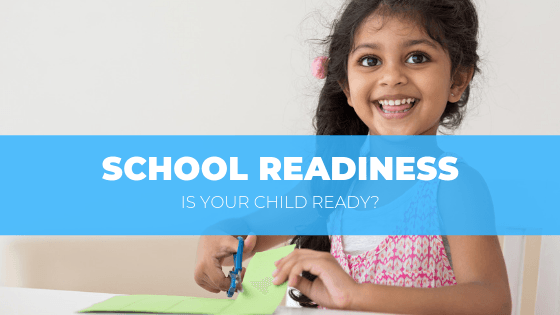Although it may not seem like to some people, preschools differ from daycare or child care centres. Child care centres are a reprieve for working or busy parents. They accept children as young as 6 weeks and watch over them during the day until the parents pick them up. Child care centres offer activities and playgroups but they don’t follow a learning curriculum.
Preschools provide a similar environment where children get to be with kids their own age. Compared to child care centres however, the atmosphere is different. Children are required to sit attentively in class but be independent during bathroom and recess breaks. Children are expected to get along nicely with others and be receptive to developing friendships. School readiness is when your child exhibits skills that will prepare them for school.
As a parent, you don’t want to make the mistake of enrolling your child too early or too late in school.
Here’s a school readiness checklist for you to review.
- Articulation and Receptive Language Skills. Your child can articulate their feelings and thoughts rather than throwing tantrums. They can comprehend simple commands and hold conversations with both children and adults.
- Cognitive, Sensory, and Executive Skills. Your child has a basic sense of sequence. They’re able to reason out and understand situations and consequences.
- Emotional Maturity and Regulation. Your child can process emotions and regulate them according to the situation. They can maintain attentiveness for longer periods of time. You can give them tasks with minimal to no unnecessary resistance.
- Independence. Your child can eat and go to the toilet alone. They only need minimal supervision on simple tasks. They understand the concept of physical cleanliness.
- Physical Coordination and Fine Motor Skills. Physical skills such as running, skipping, jumping, pushing and pulling are executed without immense difficulty. They can easily do movements using their hands, such as writing and using scissors.
- Sensory Processing and Response. Your child can distinguish colours, symbols, textures, tastes and smell. Proper response to stimulus is present, such as eating when hungry, reaching for a coat when cold or crying when hurt.
- Social Skills. Your child is able to get along with other children. However, some children may be shyer and more comfortable in smaller groups than others.
Adjusting to a new environment happens at a different pace for every child. This is why you can also consult with your child care provider or close relatives to see if your child has successfully exhibited or developed the aforementioned skills. People who have spent a great amount of time with your child can give you valuable insight.
If you feel that your child isn’t ready, don’t lose hope or feel pressured. Here are some ways you can help your child get ready for school for the following year:
- Get your child excited about school by talking about what to expect and reading stories about school.
- Schedule school visits and class sit-ins with your child. This is encouraged by most institutions as a school readiness program for preschoolers. Ask them about the experience afterwards.
- Encourage exploration and curiosity by allowing them to inspect objects around them and answering their questions.
- Get your child involved in activities, such as attending dance classes, playing with educational toys or colouring books.
- Give your child space to develop independence by letting them pick their own clothes, prepare their own sandwiches and breakfast cereals or ride a bike.
- Enrol your child in a school readiness program.
- Schedule play dates with other children or bring them to a popular playground.
- If your child has developmental delays, you may reach out to a specialist and schedule a consultation.
Never feel pressured to put your child in school earlier than needed. Doing so, while your child isn’t ready yet, might have a negative impact on their emotional and psychological wellbeing. For instance, they may lash out, retreat from people or feel stressed and overwhelmed by everyday interactions. Never rush the decision, especially for children with a less than happy childhood or if they recently had a traumatic experience.
If by any chance your child exhibits unusual or regressive behaviour after sending them to school, talk to them and find out the reason behind their behaviour. Some children may feel afraid to tell adults the truth in fear of punishment.
Assure your child gently by telling them you won’t get angry. Or let them express their thoughts in a different way, such as singing or drawing. You may also talk with their teacher and teacher aids to find out how your child is coping at school or if there are any incidents you should know about.
You can help your child by making sure their activities before and after school will provide a smooth transition between preparation, study and relaxation.
Here are some more resources provided by the Australian Institute of Family Studies on school readiness that will help both children and parents.



